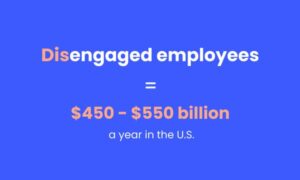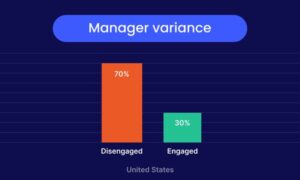Privacy Policy
Juno Journey Privacy Policy and Cookie Policy
Last Updated: Nov 2021
Juno Journey Ltd. (“Juno”, We”, “Us”, or “Our”) respects Your rights regarding Your privacy and information, and We provide this Privacy Policy (“Privacy Policy”) to help You understand how We collect, use, share, store and disclose information We obtain from or about You when You use Our Services (as defined below). This Privacy Policy applies to when You use Our Services, unless We provide a link to a different policy. Any version of this Privacy Policy in a language other than English is provided for convenience only and You understand and agree that the English language will control if there is any conflict with any non-English versions. As used herein, the term “use” shall mean use, access, install, sign into, connect with, download, visit or browse Juno’s proprietary AI-powered personalization platform that seeks to build individualized training solutions for those individuals who use and engage with it (the “Services”).
THIS IS A LEGALLY BINDING AGREEMENT BETWEEN YOU AND Juno, AND BY USING THE SERVICES, YOU AGREE TO THE TERMS OF THIS PRIVACY POLICY.
If you are a California resident, please refer to our California Data Privacy Notice.
You should review this Privacy Policy in conjunction with any other agreement or policy provided by Us that governs Your use of the Services. You should not use the Services if You do not agree with this Privacy Policy and any other agreement or policy that governs Your use of the Services.
1. Information You Provide to Us Directly
Juno may collect different information from or about You depending on the manner in which You use the Services. The following examples are provided to help You better understand the information We may collect through Your use of the Services. Please note — Juno is not responsible for how others use information that is publicly available or otherwise accessible to others who have access to the Services.
When You use the Services (including through a third-party platform), We collect the information You submit thereon such as the following:
Registration Information: Registration information such as Your e-mail address, password, and phone number (“Registration Information”).
Profile Information: You may also have the option of providing additional information about Yourself, including but not limited to a photo, resume/curriculum vitae, headline, website link, social media profile(s), phone number, or other information you may choose to enter (“Profile Information”) to create a profile (“Profile”). Your Profile and Profile Information will be publicly viewable to others.
Public Posting / Shared Content: Some of the Services may allow You to interact with other Users and/or post, share, communicate or otherwise transmit content publicly, such as posting comments on a Course page, sending messages to others, or posting photos (collectively “Shared Content” or “Public Posting”). We may collect and store Public Postings and Shared Content. Shared Content or Public Postings may be publicly available or viewable by others depending on where such content is posted. You hereby grant Juno a non-exclusive right and license to reproduce, distribute, publicly perform, offer, market and otherwise use and exploit the Public Postings and Shared Content.
Information Received Through a Third Party Platform: The Services may contain third party links or allow You to access the Services through Third Party Platforms, such as Facebook and/or Your employer’s site. If You use Our Services on or through a Third Party Platform via any means or devices (“Wireless Devices”), or click on third party links, the collection, use, and disclosure of Your information and Your use of the Services will also be subject to the privacy policies and other terms of such third parties or Third Party Platforms. You should review such privacy policies, terms, and other agreements. When You use Our Services through a Third Party Platform, You allow Us to collect and use certain information from Your Third Party Platform profile or account as permitted by the terms of that Third Party Platform, Your privacy settings and in accordance with this Privacy Policy. By way of example only, We may collect some or all of the following information from Your Third Party Platform account when You register or use the Services on or through a Third Party Platform: (i) Your full name; (ii) Your profile picture or its URL; (iii) Your employment details (i.e., title, responsibilities, number of years of employment, etc.) and (iv) Your physical location and that of Your access devices, including any Wireless Device
Sweepstakes, promotions, and Surveys: From time to time, We may ask You to complete a survey and/or offer You the opportunity to participate in promotions and/or sweepstakes (collectively, “Promotions”) via the Services or through a Third Party Platform. If You choose to participate in a Promotion, We will collect and store the information You provide in connection with Your participation in the Promotion, including, but not limited to, Your name, e-mail address, date of birth, and/or phone number. Such information shall be subject to this Privacy Policy unless otherwise stated in the official rules or guidelines of the Promotion or in another privacy policy governing the Promotion. Information we collect in connection with a Promotion will be used to administer the Promotion, such as by notifying winners and distributing prizes. As permitted by applicable law, Your information may also be used by Juno or the Promotion sponsor for marketing purposes. Your entry into the Promotion may result in the addition of Your information to our mailing list as well as to the mailing list of our promotional partners. Acceptance of a prize may require You (unless prohibited by law) to allow Us to post publicly some of Your information via our Services, such as on a winner’s page. In some instances, a third-party advertiser or sponsor may operate or host a Promotion on or through our Services, and collect Your information. In those cases, where We are not the sponsor or operator of the Promotion, We have no control over the information collected and, before participating, You should review the official rules as well as the advertiser’s or the sponsor’s privacy policy applicable to the Promotion. All of Our Promotions are intended for people who are the age of majority in their respective state, province or country unless otherwise expressly stated.
Communications, Support Requests, Potential Abuse: If You contact Us for assistance, or to report a problem, concern, potential abuse or other issues regarding the Services, including before You have created an Account, We may collect and store Your contact information, communication, and/or other information about You, including but not limited to Your name, e-mail address, location, operating system, IP address, any other information You provide Us in the course of such communications, and/or other information that may be collected by automated means described herein. We reserve the right to conduct further research and obtain further information as necessary. We will use the information to respond to You and research Your request/communication, all in accordance with the provisions of this Privacy Policy.
2. Information We Collect Through Automated Means
When You access the Services, We collect certain information by automated means. This information may include without limitation: (i) technical information about Your computer or Wireless Device, such as Your IP address, device type, operating system type and version, unique device ID, browser, browser language, domain and other systems information, platform types (collectively, “Technical Information”); and (ii) usage statistics about Your interaction with the Services, including Courses accessed, time spent on pages or the Services, pages visited, search queries, click data, portions of the Services used, date and time, and other information regarding Your use of the Services (collectively, “Usage Data”). This Technical Information and Usage Data, which may be linked to Your information, is collected through the use of server log files and tracking technologies, including: (a) cookies, which are small files that websites send to Your computer or Wireless Device to uniquely identify Your browser or mobile device or to store information in Your browser setting; and (b) web beacons, which are small objects that allow Us to measure the actions of visitors using the Services. For more detailed information regarding how We use cookies and other technology, please review the additional information in this Privacy Policy under the Section entitled “Our Cookies Policy”.
In addition to the foregoing, we are likely to collect your geolocation information. This is done by collecting your IP address via Your browser or device, and we use this data to determine Your approximate location, such as the city, state and/or country associated with that IP address.
3. Cookies and Data Collection Tools
Like many websites and app providers, Juno (and/or service providers acting on Our behalf, such as Google Analytics and/or our third-party advertisers) may use server log files and automated data collection tools, such as cookies, tags, scripts, device or browser fingerprints, and web beacons (collectively, “Data Collection Tools”) when You access and use our Services. In some cases, We tie the information gathered by these means to Our other information You provide and that we collect as described in this Privacy Policy. These Data Collection Tools automatically track and collect certain Technical Information and Usage Data that Your browser sends when You use our Services. In some cases, We will associate this Technical Information and Usage Data with other information about You.
We use cookies for a variety of reasons, including to: (i) analyze the usage of our Services; (ii) provide a more personalized experience; (iii) allow You to more easily login to use our Services; and (iv) help make Your use of Our Services more efficient and more valuable by providing You with a customized experience and recognizing You when You return. We may also employ web beacons or other technology for a variety of reasons such as: (i) allowing Us to know if a certain page was visited or whether an e-mail was opened; (ii) allowing Us to advertise more efficiently by excluding our current Users from certain promotional messages or identifying the source of a new installation.
Juno uses the following types of cookies:
Preferences. We use preferences cookies to remember information about Your browser and how You prefer to use Our Service, i.e. to remember Your preferred settings that affect the experience of how Our Services look to You or behave when You access and/or use them, such as Your preferred language. Preference cookies make Your experience of interacting with Our Services more functional and customized to suit Your preferences.
Security. We use security cookies to enable You to log-in and access Our Service, to protect Your Account against fraudulent log-ins by others, and help detect, fight, and protect against abuse or unauthorized usage of Your Account.
Functional. We use functional cookies to make the experience of using Our Services better, like remembering the volume at which You like Your videos to play.
Session State. We use session cookies to collect information about how You interact with Our Services, to help Us improve Our Services, as well as improve Your browsing experience. We also use session cookies to remember Your log-in details and to be able to process Your purchases of Courses. These are deemed strictly necessary to the working of the Services. If these are disabled, then various functionalities of our Services will be broken.
You can set Your web browser to warn You about attempts to place cookies on Your computer, limit the types of cookies You allow or refuse cookies altogether; however, You may not be able to use some or all of the features of the Services, or Your experience will be different or less functional if You refuse/disable cookies. Third parties with whom We partner to provide certain features on Our site may use Local Storage Objects, also known as Flash Cookies (LSOs) to collect and store information. Various browsers may offer their own management tools for removing LSOs. To manage LSOs provided by Adobe, please click here. By using Our Services, You consent to Our use of cookies, web beacons, LSOs and other Data Collection Tools as described in this Privacy Policy. For more information, please see the Juno Cookies Policy set forth below.
4. Analytics.
We may use third-party browser and mobile analytics services on our Service, including but not limited to Google Analytics. These service providers use the sort of technology described above to help us analyze how users use the Services, including by noting the third-party website from which you arrive, how often You use the Services, the events that occur within the Service, usage data, performance data, and where the application was downloaded from. The information collected will be disclosed to or collected directly by these service providers, and We use this information to improve the Services, to better understand the functionality of the Services on a computer or other device, and to provide information that may be of interest to You. You have some choices concerning our use of these analytics. For instance, to prevent Google Analytics from using your information for analytics, you may install the Google Analytics Opt-out Browser Add-on by clicking here.
5. Online Advertising
We may use third-party advertising technologies that allow for the delivery of advertising about our Services on other websites You visit and other applications You use. The ads may be based on various factors such as the content of the page You are visiting, information You enter such as Your age and gender, Your searches, demographic data, user-generated content, and other information we collect from You. These ads may be based on Your current activity or Your activity over time and across other websites and online services and may be tailored to Your interests.
We use third parties (e.g., ad networks and ad servers such as Google Analytics, DoubleClick and others) to help deliver these tailored advertising on other websites and in mobile applications. These third parties may place cookies or other tracking technologies on Your computer, mobile phone, or other device to collect information about Your use of the Services as discussed above and may access these cookies or other tracking technologies on Your computer, mobile phone, or other device You use to access the Services to serve these tailored advertisements. We also may share with third-party advertisers a hashed version of Your email address that is anonymized and cannot be used to identify you, solely in non-human readable form and content that You share publicly when using the services (e.g, user- generated content) for purposes of delivering tailored advertising. We neither have access to, nor does this Policy govern, the use of cookies or other tracking technologies that may be placed on Your computer, mobile phone, or other device You use to access the Services by non-affiliated, third-party ad technology, ad servers, ad networks or any other non-affiliated third parties. Those parties that use these technologies may offer You a way to opt out of ad targeting as described below. You may receive tailored advertising on Your computer through a web browser.
When using a mobile application, you may also receive tailored in-application advertisements. Each operating system, iOS for Apple phones, Android for Android devices and Windows for Microsoft devices provides its own instructions on how to prevent the delivery of tailored in-application advertisements. You may review the support materials and/or the privacy settings for the respective operating systems in order to opt-out of tailored in-application advertisements. For any other devices and/or operating systems, please visit the privacy settings for the applicable device or contact the applicable platform operator. Please note that to the extent advertising technology is integrated into the Services, You may still receive advertisements on other websites and mobile applications even if You opt-out. In that case, the advertising will not be tailored to Your interests. Also, we do not control any of the above opt-out links or whether any particular company chooses to participate in these opt-out programs. We are not responsible for any choices You make using these mechanisms or the continued availability or accuracy of these mechanisms.
To the extent applicable, by opting-in to receive text messages from us or by sending us an initial text message, you agree to receive text messages (a.k.a. SMS messages) from Juno, some of which may be considered marketing and may be delivered by us using autodialer systems/technologies. You also represent that you are the owner or authorized user of the mobile device that you used to subscribe for our mobile communications and that you are authorized to approve the applicable charges, as applicable. You (and not Juno) will be responsible for all messaging and data charges that may apply. You can opt-out of receiving text messages from us at any time by texting “STOP” from the mobile device receiving the messages. For additional help, you may contact us by sending an email to [email protected]
6. Our Policy Concerning Children
We recognize the privacy interests of children and We encourage parents and guardians to take an active role in their children’s online activities and interests. Children under the age of 16 should not use or attempt to use Our Services. If We learn that We have collected personal information (as defined by applicable law) from a child under 16 years of age, We will promptly take reasonable steps delete such information. Parents who believe that Juno might have collected personal information from a child under the age of 16 may submit a request to [email protected] and request that the information be removed.
7. How We Use the Information We Collect
Juno may use the information We collect through Your use of the Services to:
Provide, administer, and facilitate Your use of the Services, including to display customized content;
Process or fulfill Your request(s) and/or order(s) for Juno-featured courses, products, services, information or features;
Communicate with You concerning Your Account by: (i) responding to Your questions or concerns; (ii) Sending You Service and administrative messages and information, including comments from Instructors or teaching assistants, those about changes to the Service, and updates to our Terms of Use, and Privacy Policy; (iii) Emailing You information or providing in app messages about rewards programs, new services, new features, promotions, newsletters, and other available Courses, which You can opt out of at any time; and (iv) Sending push notifications to Your Wireless device to provide updates and other relevant messages. You can manage push notifications from the “options” or “settings” page for the mobile application.
Understand and improve the Services and develop new products, services or features;
Enable User-to- User communication and interaction;
Manage Your Account preferences, establish Your Profile and Registration Information;
Facilitate the technical functioning of the Services, including without limitation to troubleshoot and resolve issues, secure the Services; and prevent fraud and abuse
Respond to customer support questions and issues and resolve disputes;
Create, review, analyze and share Technical Information;
Analyze trends and User traffic, track purchases and usage information;
Advertise our Services on third party websites or mobile applications
Market, process or fulfill Promotions administered or sponsored by Juno;
Solicit feedback from Users; As required or permitted by law; As We, in Our sole discretion, otherwise determine to be necessary or required to ensure the safety and/or integrity of Our Users, employees, third parties, members of the public, and/or our Services;
Identify unique users across devices; or
Tailor advertisements across devices.
8. When and How We May Share/Disclose Your Information with Third Parties
We will share Your information which may include Registration Information, Profile Information, and Shared Content and Course Information) with the following third parties or under the following circumstances or as otherwise described in this Privacy Policy:
Third Party Business Partners, Service Providers, Contractors or Agents: We may share Your information with third party companies that perform services on Our behalf. These third party service providers may access Your personal information, and are required to use it solely as directed by Us for the purpose of Our requested service.
Business Transfers, Sales, Mergers, or Divestitures: In the event that Juno undergoes a business transition, such as a merger, acquisition, corporate divestiture or dissolution (including bankruptcy), or a sale of all or a portion of its assets, We may share, disclose or transfer all of Your information to the successor organization in such transition or during steps in contemplation of such activities (e.g., due diligence).
With Your Permission: We may share information with Your consent to third parties not within scope of this Privacy Policy.
Aggregate or De-identified Information: We may disclose or use aggregate or de-identified information for any purpose.
Promotions: We may share Your information in connection with any Promotion You enter on or through the Services, as necessary to administer, market, sponsor, or fulfill the Promotion or as required by applicable laws, rules or regulations (for example, to provide winners’ lists or make required filings as appropriate) or in accordance with the applicable rules of the Promotion. We may share Your information with a third party assisting us in administering the Promotion.
Social Media Features: Our Services may include social media features, such as the Facebook Like button. Our integration of these features may allow third party social media provided to collect certain information such as Your IP address, which page You are visiting when using Our Services, and to set a cookie to enable the feature to function properly. Social media features are either hosted by a third party or hosted directly through the use of Our Services. Your interactions with these features are governed by the privacy policy of the company providing it.
Safety, Security, Cooperation with Law Enforcement, & Compliance with Legal Obligations: We may disclose Your information to third parties, if We, in our sole discretion, have a good faith belief that disclosure is: (i) permitted or required by law; (ii) requested in connection with or relevant to a judicial, governmental or legal inquiry, investigation, order, or proceeding; (iii) required or reasonably necessary pursuant to a valid subpoena, warrant or other legally valid inquiry or request; (iv) reasonably necessary to enforce Our Terms of Use, this Privacy Policy, or any other legal agreements; (v) required to detect, prevent, or otherwise address fraud, abuse, misuse, potential violations of law (or rule/regulation), and/or security or technical issues; or (vi) required or reasonably necessary in Our discretion to protect against imminent harm to the rights, property or safety of Juno, Our Users, employees, members of the public and/or our Services. We may also disclose information about You to Our auditors or legal advisors in conjunction with accessing Our disclosure obligations and/or rights under this Policy.
9. How Do We Keep Your Information Secure?
Juno takes appropriate security measures to protect against unauthorized access to, or unauthorized alteration, disclosure or destruction of, data that You share and We collect and store. These measures vary based on the sensitivity of the data we collect and store. Unfortunately, however, no system can be 100% secured, and We cannot guarantee that communications between You and Juno, the Services, or any information provided to Us in connection with the information We collect through the Services will be free from unauthorized access by third parties. Unauthorized entry or use, hardware or software failure, and other factors may compromise the security of User information at any time. Your password is an important component of Our security system. As such, it is Your responsibility to protect it. Do not share Your password with any third parties. If Your password has been compromised for any reason, You should change it immediately and contact [email protected] with any concerns.
10. California Online Privacy Protection Act Notice
We are committed to providing You with meaningful choices about the information collected on our Services for third-party purposes, and that is why we provide information and choices discussed throughout this Privacy Policy. However, we do not recognize or respond to browser-initiated Do Not Track signals, as the Internet industry is currently still working on Do Not Track standards, implementations and solutions.
11. How to Access & Update Your Information
You may access and update Your information that Juno collects and maintains in the following ways:
You may update the information You provide directly to Juno by logging into Your Account and updating Your Account information at any time. You may also submit any requests for access to Your personal data to [email protected] Please allow up to thirty (30) days for a response.
To manage the information Juno receives about You from a Third Party Platform or Wireless Device, please follow the instructions provided by the Third Party Platform or Wireless Device provider for updating Your information and changing Your privacy settings. Once Juno receives Your information from a Third Party Platform or Wireless Device, that information is stored and used by Juno in accordance with this Privacy Policy.
12. How to Delete Your Account and What Happens When Your Account is Terminated or Deleted
Should You require any assistance or encounter any difficulty in deleting or de-activating Your Account You may contact Us via email at [email protected] , and We will make commercially reasonable efforts to respond to Your request within 48 hours.
Account Terminated or Deleted: Please be aware that even after Your Account is terminated or deleted some or all of Your information may still remain visible to others, including but not limited to any information that has been: (a) incorporated into others User’s content, comments, postings, submissions, including but not limited to Course comments ; (b) copied, stored or disseminated by other Users; (c) shared or disseminated by You or others such as in a Public Posting; or (d) posted on a Third Party Platform. Termination of Your Account will not result in the removal of information collected and already put in aggregate form or information that cannot, in Our sole discretion, be removed without undue burden to Juno. Juno is not able and/or obligated to remove any of Your information from a Third Party Platform. Even after You delete Your Account or Your Account is terminated, we may retain Your information as long as we have a legitimate purpose to do so and in accordance with applicable law. In addition, Your information may not be deleted from servers of the Third Party Platform You use to access Our Services. We may retain backup copies of Your information on Our servers or databases (and/or any authorized third-party servers or databases We use) for legitimate purposes such as assist with any legal obligations, resolve disputes, and enforce Our agreements. Such information may be disclosed pursuant to this Privacy Policy regardless of whether Your Account is deleted or terminated.
13. Links to Third Party Sites
This Site contains links to other sites that are not owned or controlled by Juno. Please be aware that we are not responsible for the privacy practices of such other sites. We encourage you to be aware when you leave our site to read the privacy statements of each and every website that collects your personally identifiable information. This Privacy Policy solely applies to information collected via this Site.
14. Modifications to this Privacy Policy
From time to time, We may update this Privacy Policy. If We make any material change to this Privacy Policy, We will notify You via email or through notification posted on our website, and as required by applicable law. Modifications will become effective on the day they are posted unless stated otherwise. As permitted by applicable law, if You continue to use the Services, after the effective date of any change, then such access and/or use will be deemed an acceptance of and an agreement to follow and be bound by the Privacy Policy as changed. The revised Privacy Policy supersedes all previous Privacy Policies. For this reason, We encourage You to review this Privacy Policy any time You use the Services. Upon Our request, You agree to accept or sign a non-electronic version of this Privacy Policy and any other policies or agreements set forth or available through any Third Party Platform.
15. International Operations: A Note to Users Outside Of the U.S. and the EU
Juno stores information about visitors to Our Services and Users on servers located in various jurisdictions. By using our Services, you consent to storage of Your information inside the United States and elsewhere that Juno has hosting arrangements. If You are using the Services from outside the United States and the European Union, please know the data and personal information You submit will be transferred to and stored in servers in the United States or other countries. The data protection and other laws of the United States and/or other countries might not be as comprehensive as those in Your country. By submitting Your data and/or using Our Services, You consent to the transfer, storing, and processing of Your data in and to the United States.
Personal data collected within Switzerland and the European Economic Area (“EEA”) may be transferred to, and stored at, a destination outside of Switzerland and the EEA. The data We hold may also be processed by employees operating outside of Switzerland and the EEA who work for Us or one of our affiliates or for one of Our vendors. Such staff may be engaged in, among other things, (i) the processing of transactions and Your payment details and (ii) the provision of support services. By submitting Your personal data or engaging in Juno Courses, You agree to this transfer, storing or processing.
16. Your Rights
If for any reason you wish to exercise any rights to which you are entitled, you may do so by contacting us at [email protected]. When handling your requests, we may ask for additional information to confirm your identity and your request.
The rights which you may be able to exercise may include, but are not limited to, the following:
Right of Access. You may have the right to know the personal information we’ve collected from/about you. We reserve the right to ask for reasonable evidence to verify your identity before we provide you with any information.
Right to Correct Personal Information. We endeavor to keep the information that we hold about you accurate and up to date. Therefore, you may have the right to update and correct any errors in your personal information.
Right to Delete. In some circumstances, you may have the right to request that we delete the personal information about you in our records.
Data Portability. In some circumstances and under certain laws and regulations, you may have the right to request that Personal Data that you have provided to us be provided to you, so you can transfer it elsewhere.
In some cases, your ability to access or control your personal information will be limited, as required or permitted by applicable law. If that should happen, the Juno will notify you accordingly. Your ability to access or control your personal information under this Privacy Policy depends on the nature of the services you use. For example, if you ask us to delete your personal information, we may not be permitted to do so by the entity through which you receive the services and to whom we may have contractual obligations that limit our ability to provide you with the rights enumerated under this section.
17. Your California Privacy Rights
California residents have the right to receive, once a year from Us: a) information identifying any third-party company(ies) to whom Juno may have disclosed (within the previous calendar year) Your personal information for that company’s direct marketing purposes; and b) a description of the categories of personal information disclosed. If You are a California resident and wish to obtain such information, submit a request to Us at [email protected] ; when you request the information, use the phrase “California Shine the Light Request” to help us appropriately identify your question, and include your mailing address, state of residence and email address so we can provide a response.
18. Questions
You may contact us by submitting a request to [email protected] and we will do our best to provide a prompt response to your question. In addition, Juno’s Privacy and Data Protection Officer is responsible for overseeing compliance with this Privacy Policy. You can reach this officer by calling him at +972-525515345. Please put “Privacy Policy” in the subject line so Your message can be directed to the correct person(s).
Juno Cookies Policy
What are cookies?
Cookies are small text files placed onto your computer or device as you browse the Internet. Cookies can be used to collect, store and share bits of information about your activities across websites and services, including on Juno. They also allow us to remember things about your visit to Juno, such as your preferred language and other choices/settings and generally make the site easier for you to use.
Juno uses both session cookies and persistent cookies. A session cookie is used to identify a particular visit to Juno. These cookies expire after a short time, or when you close your web browser after using Juno. We use these cookies to identify you during a single browsing session, such as when you log into Juno. A persistent cookie will remain on your devices for a set period of time specified in the cookie. We use these cookies where we need to identify you over a longer period of time. For example, we would use a persistent cookie if you asked that we keep you signed in.
Why does Juno use cookies and similar technologies?
Juno uses cookies and similar technologies, such as web beacons, browser cookies, pixel tags, or local shared objects (“flash cookies”), to deliver, measure, and improve our services in various ways. We use cookies both when you access our site and services on a browser, as well as through our native mobile app. As we adopt additional technologies, we may also gather additional information through other methods.
We use cookies for the following purposes:
Authentication and security: To log you into Juno; to protect your security; and to help us detect and fight spam, abuse, and other activities that violate Juno’s agreements and terms. These technologies help authenticate your access to Juno and prevent unauthorized parties from accessing your accounts.
Preferences: To remember information about your browser and your preferences; and to remember your settings and other choices you have made. Cookies help us remember your preferred language or the country that you are in. We can then provide you with content in your preferred language without having to ask you each time you visit Juno.
Analytics and research: To help us improve and understand how people use Juno. Cookies help us test different versions of Juno to see which particular features or content users prefer. We may include web beacons in e-mail messages or newsletters to determine whether the message has been opened and for other analytics. We might also optimize and improve your experience on Juno by using cookies to see how you interact with Juno, such as when and how often you use them and what links you click on.
To help us better understand how people use Juno, we work with a number of analytics partners, including Google Analytics and Mixpanel. These providers use cookies and similar technologies to help us analyze how users use the Services, including by noting the third-party Services from which you arrive. The information collected will be disclosed to or collected directly by these service providers, who use the information to evaluate your use of Juno. To prevent Google Analytics from using your information for analytics, you may install the Google Analytics Opt-Out plugin by clicking here, and you may also use Mixpanel’s opt out by clicking here. We don’t release the information collected from our own cookies to any third parties, other than to our service providers who assist us in the following activities.
Personalized content: To customize Juno with more relevant content.
Advertising: To provide you with more relevant advertising.
As explained further in our Privacy Policy, third-parties whose products or services are accessible or advertised via Juno may use cookies to collect information about your activities on the Services, other sites, and/or the ads you have clicked on. This information may be used by them to serve ads that they believe are most likely to be of interest to you and measure the effectiveness of their ads. Targeting and advertising cookies we use may include Google Analytics, AdRoll, AppNexus, and other advertising networks and services we use from time to time. For more information about targeting and advertising cookies and how you can opt out, you can visit youronlinechoices.eu or allaboutcookies.org/manage-cookies/index.html . Please note that to the extent advertising technology is integrated into Juno, you may still receive advertising content even if you opt- out of tailored advertising. In that case, the advertising content will just not be tailored to your interests. Also, we do not control any of the above opt-out links and are not responsible for any choices you make using these mechanisms or the continued availability or accuracy of these mechanisms.
When accessing Juno from a mobile application, you may also receive tailored in-application advertisements. Each operating system, such as iOS and Android, provides its own instructions on how to prevent the delivery of tailored in-application advertisements. You may review the support materials and/or the privacy settings for the respective operating systems in order to opt-out of tailored in- application advertisements. For any other devices and/or operating systems, please visit the privacy settings for the applicable device or operating system or contact the applicable platform operator.
What are my privacy options?
You have a number of options to control or limit how we and our partners use cookies.
This cookie policy is available at our site. By continuing to use or access Juno, you are consenting to our use of cookies and related technologies as described in this Cookies Policy.
Most browsers automatically accept cookies, but you can modify your browser setting to decline cookies by visiting the Help portion of your browser’s toolbar. If you choose to decline cookies, please note that you may not be able to sign in, customize, or use some of the interactive features of Juno.
Flash cookies operate differently than browser cookies, and cookie management tools available in a web browser will not remove flash cookies. To learn more about how to manage flash cookies, you can visit the Adobe website and make changes at the Global Privacy Settings Panel.
For general information about cookies and how to disable them, please visit www.allaboutcookies.org.
Changes to this Policy
If We make any material change to this Policy. We will notify You via email or through notification posted on our website, and as required by applicable law. Modifications will become effective on the day they are posted unless stated otherwise.
Questions
If you have any questions about our use of cookies, please email us at [email protected]







